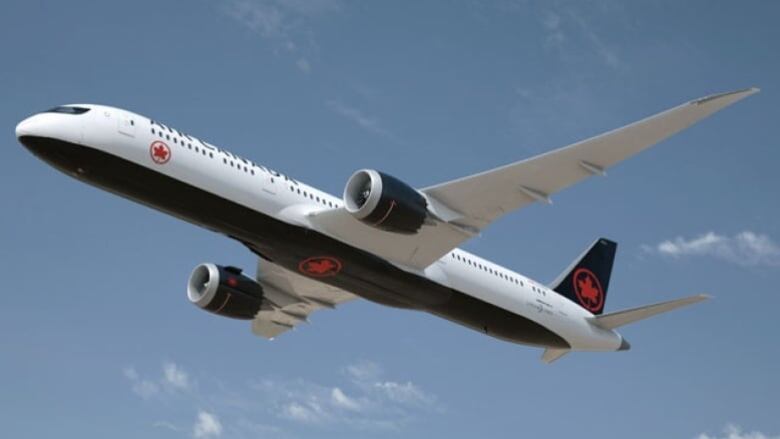'Profoundly disappointed': Pilots call new safety rules to address flight fatigue 'substandard'
Regulations limit alcohol use and the number of hours pilots can fly

Transport Canada has laid out stricter safety rules meant to ensure pilots are well rested and alert on the job, but Air Canada pilots say they're profoundly disappointed with the "substandard" regulations.
The new regulations are designed to limit any activity that might impairpilots'ability to perform their duties, and affect both big international and smaller regional carriers.
The updated Canadian Aviation Regulations, announced Wednesdayby Transport Minister Marc Garneau, cap the number of hours pilots can fly to prevent cockpit fatigue, and to align Canada's rules with those in the U.S. and European Union.
Under the revised rules, pilots are banned from consumingalcohol for 12 hours before a flight, anincrease from the current limit of eighthours.
Several airlines, including Air Canada, already have announced a blanket prohibition on consuming cannabis on and off duty. The new regulations do not specifically address marijuana, but existing regulations prohibit all people in safety-sensitive positions from working if they are impaired.
It is illegal to fly an aircraft under the influence of cannabis.
Garneausaid the new regulations align with today's scientific data, international standards and best practices, and respond to concerns raised by communities, pilots and airlines.
"I'm confident that these new regulations will reduce pilot fatigue and make air travel safer," he said during a news conference on Parliament Hill.
Garneau said exceptions will be made for special flights such as medical evacuations and planes used for emergencies such as fighting fires. Companies that carry cargo long-haul or to remote regions can seek flexibility through a fatigue risk management system.
Flight, duty time limits
The changes also spell out new flight and duty-time limits.
Current Canadian rules set in the 1970s allow a workday of 14 consecutive hours in a 24-hour period; the new rules set that at 9 to 13 hours.
The flying limit will be determined by many factors, including what time the crew starts a shift.
Duty time will depend on the time of day a flight begins. A pilot whotakes off, for example, at 8 a.m.will have a longer duty period than a pilot whotakes off at 11 p.m. because Transport Canada says pilots are known to be more alert and aware during certain times of day.
How many times a pilot takes off and lands also will be a factor in determining the length of duty time. The new rules will take into account the fatigue involved in the number of take-offs and landings a pilot must endure.
The Air Canada Pilots Association (ACPA) issued a statement lashing out at what it called "substandard" rules.
"The Air Canada Pilots Association, the largest single pilot group in Canada,representing more than 4,000 professional pilots across Canada who fly the vast majority of Canadian overseas flights, is gravely disappointed that Minister Garneau and the federal government are moving forward with substandard fatigue rules," said the statement from Matt Hogan, chair of the association's elected council.
'Profoundly disappointed'
"To say that we are profoundly disappointed is an understatement."
Hogan said the rules allow for a maximum flight time for Canadian pilots flying at night that's two hours longer than the maximum flight time recommended by NASA's Ames Research Centre andtwo and a half hours longer than the limit for U.S. pilots.
"It is unbelievable that in the face of scientific evidence and international best practice our government expects pilots to fly two hours longer than what NASA says is safe," he said.
The Air Line Pilots Association (ALPA) Canada said Canada's regulations have long been recognized asinadequate, and called today's announcement"long overdue."
'Significant improvement'
"We've worked diligently to secure updated, science-basedflight and duty-time regulations, which for years has been one of the most important aviation safety issues for flight crews in Canada," said Dan Adamus, president of ALPA Canada.
"While the regulations announced today do not address all of our concerns and recommendations, they are a significant improvement over the current rules and will improve aviation safety."
The association said regulations bring Canada in line with the rest of the world and will improve safety for passengers and flight crews.
The changes to the regulations are expected to cost the airline industry about $337 million over 15 years,mostly because of the need for more pilots.
Big airlines will havetwoyears to implement the new regulations. Smaller operators will have fouryears.
Air Canada says it is reviewing the regulations.
"Air Canada has always met or exceeded Transport Canada standards regarding flight duty times and already has a comprehensive fatigue risk management program in place," said spokesperson Isabelle Arthur.
"We are currently reviewing the new regulations and it is premature to comment further on the government's plan."












_(720p).jpg)


 OFFICIAL HD MUSIC VIDEO.jpg)
.jpg)



























































































